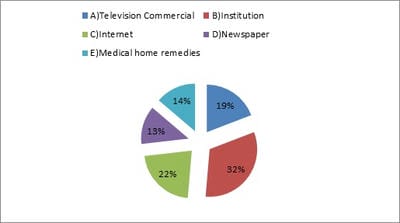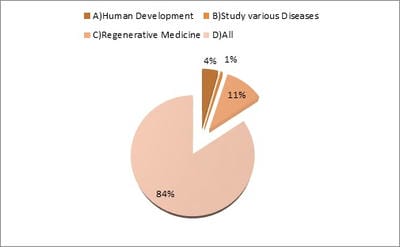A cross- sectional study to assess the knowledge regarding stem cells and its transplantation among students from various colleges & women from anc clinic in Indore
Yesikar V.1, Banseria R.2*, Dixit S.3, Shivram G.4
DOI: https://doi.org/10.17511/ijphr.2016.i4.04
1 Veena Yesikar, Associate Professor, Department of Community Medicine, MGM Medical College, Indore, Madhya Pradesh, India.
2* Ruchita Banseria, Resident, Department of Community Medicine, MGM Medical College, Indore, Madhya Pradesh, India.
3 Sanjay Dixit, Professor & Head, Department of Community Medicine, MGM Medical College, Indore, Madhya Pradesh, India.
4 Geeta Shivram, Demonstrator, Department of Community Medicine, MGM Medical College, Indore, Madhya Pradesh, India.
Introduction: Stem cell transplantation (SCT) is a life-saving procedure for a number of malignant and non-malignant life-threatening diseases. Umbilical cord blood (UCB) which was thought to be as waste material earlier, is considered now a valuable thing. It is an important source of hematopoietic stem cells. A stem cell transplant is the infusion of healthy cells to replace diseased or damaged ones. Material and Method: This was a Cross- sectional study conducted on 80 undergraduate medical students & 80 non-medical students and 40 Antenatal mothers. The study tool for data collection in the form of a Structured Questionnaire was designed. Study was conducted for a period of two months. Data was analysed in SPSS version 20, Chi-Square test was used to assess the significance of the responses and a P value < 0.05 was considered statistically significant. Results: 45% medicos and 31.25% non medicos were aware of the terminology stem cell while only 10% Antenatal mothers knew about it. Monetary Reason was the major factor which prevented 77.5% mothers from opting for stem cell preservation while12.5% Antenatal mothers never thought of it, 7.5% Antenatal mothers did not opt because of social stigma and 2.5% due to Ethical consideration. Conclusion: Students from streams other than Medicine and antenatal mothers should be educated about the advances being made in Medical Science and a brief introduction about the newer modalities of treatments, to increase people participation and achieving a Holistic Approach towards Health Care.
Keywords: Antenatal mothers, Medical students, Non-medical students, Stem cell transplantation (SCT)
| Corresponding Author | How to Cite this Article | To Browse |
|---|---|---|
| , Resident, Department of Community Medicine, MGM Medical College, Indore, Madhya Pradesh, India. Email: |
Yesikar V, Banseria R, Dixit S, Shivram G. A cross- sectional study to assess the knowledge regarding stem cells and its transplantation among students from various colleges & women from anc clinic in Indore. Public Health Rev Int J Public Health Res. 2016;3(4):156-161. Available From https://publichealth.medresearch.in/index.php/ijphr/article/view/46 |


 ©
© 
